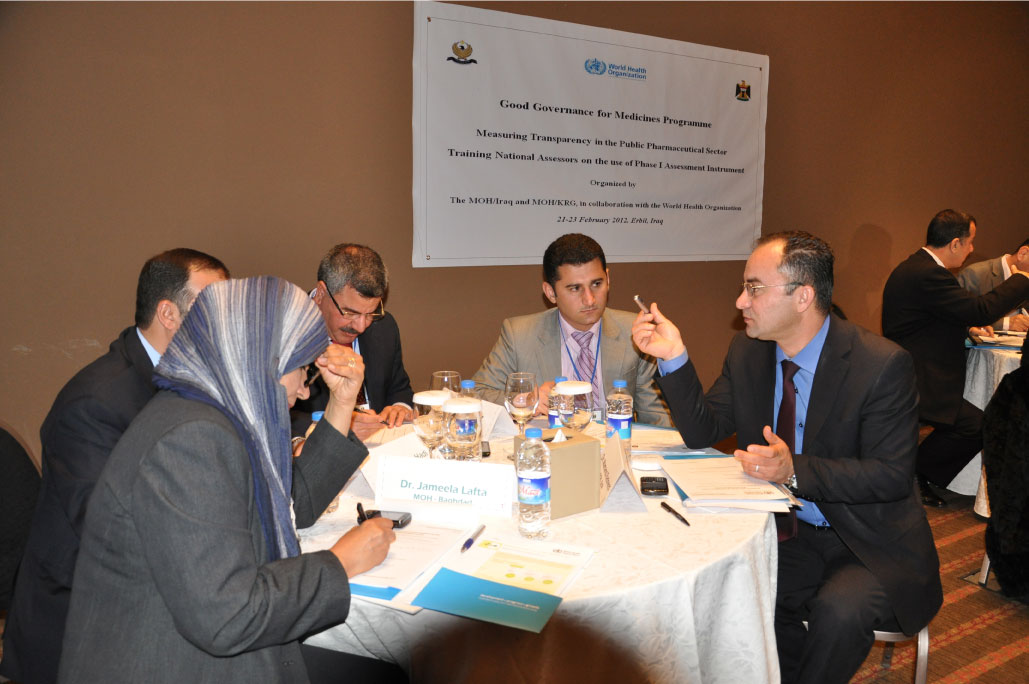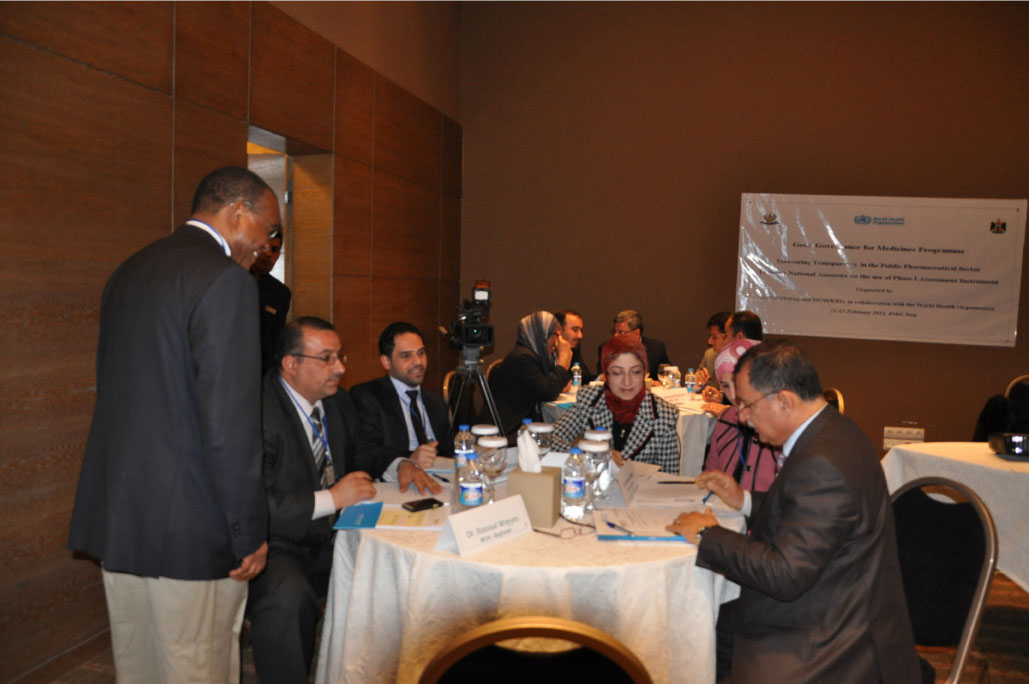21 February 2012 – The Ministry of Health of Iraq (MOH) and the Ministry of Health for the Kurdistan Regional Government (KRG), in collaboration with the World Health Organization (WHO) have launched today, the field implementation of phase I of the programme of Good Governance for Medicines (GGM). MoH staff and WHO working together for a better Governance for Medicines in the future
MoH staff and WHO working together for a better Governance for Medicines in the future
With the training for three days of 14 national assessors (10 from MOH/Baghdad and 4 from MOH/KRG) on the use of the standardized assessment instrument and methodology for measuring transparency in the public pharmaceutical sector, the ministries of health in Baghdad and Erbil will be able to obtain a better understanding of the potential vulnerability of the pharmaceutical sector to corruption and in addressing gaps identified.
In his introductory remarks, Dr. Ezechiel Bisalinkumi, representing WHO, stated that the GGM programme operates globally in 31 countries. He praised the strategic decision taken by the Government of Iraq to join GGM activities as this was an important step towards increasing transparency and accountability in medicine regulatory and supply management systems, as well as in promoting individual and institutional integrity and institutionalizing good governance in the Iraqi pharmaceutical system.
Dr. Nisar Talabany, Senior Advisor to the Prime Minister/KRG stated that “Promoting good governance in the pharmaceutical sector must be considered as part of the global agenda pursued by the Government in modernizing public institutions for an improved performance”.. She added that “We would like to reiterate our commitment to this global GGM movement, because we believe that, better governance in the pharmaceutical sector will help us deliver better quality of healthcare for our citizens, particularly the most vulnerable.”
The GGM programme is implemented in three phases which include (1) the national transparency assessment, (2) the development of national GGM framework and (3) the implementation of the national GGM framework. WHO has developed a complete technical package to guide countries through each of the three phases. Coming up with ways to implement phase I of the programme of Good Governance for Medicines (GGM)
Coming up with ways to implement phase I of the programme of Good Governance for Medicines (GGM)
Dr. Mudhaffar Ali Abbas, Assistant Director General for KIMADIA, the state company for medicines and medical appliances, reiterated the commitment of the Ministry of Health to go through the process as this will help to assess all the central functions of the pharmaceutical sector such as registration of medicines and control of their promotion, the inspection and licensing of establishments, the selection, procurement and distribution of essential medicines and the control of clinical trials.
In the Eastern Mediterranean Region, there are 8 countries currently implementing the GGM programme and Iraq is among the recent five in the region that have joined the GGM initiative. “We will draw lessons learned from experience of similar countries such as Lebanon and Jordan that have already completed the implementation of GGM phase I and this will be done in an inclusive and transparent process involving all key stakeholders” stated Dr. Jameel Ali Rasheed, Director General, Technical Affairs Department at the MOH/KRG.
At the end of the training, the national assessors are expected to develop a work plan to conduct the assessment. WHO will be providing the required technical support to build MOH’s capacities to implement GGM programme.





